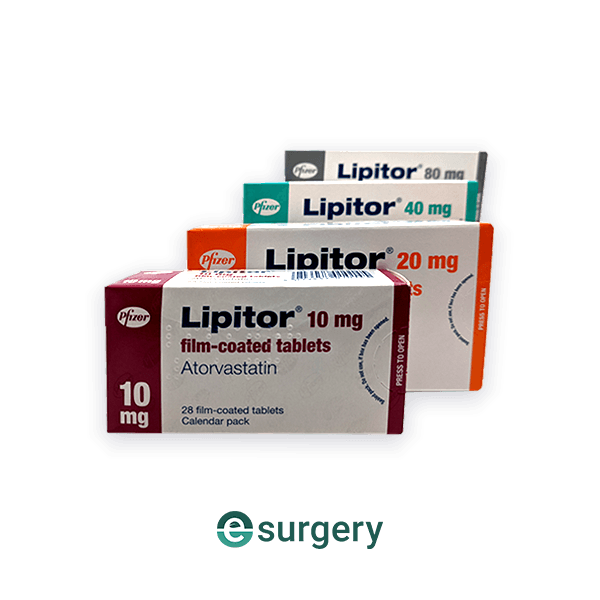
While it may feel overwhelming, checking your blood cholesterol is an important first step toward a healthy lifestyle.
This quick test, performed by your health professional will determine your cholesterol level and give you a chance at improving it before it turns into a major health risk. But what is a normal cholesterol level in the UK? Continue reading to learn more about normal cholesterol levels in the UK and how you can lower your cholesterol levels if the number is high.
What is cholesterol?
Cholesterol refers to a lipid that is found in the body. It’s required for cell membrane development, absorption of Vitamin D, and the production of some hormones. Because cholesterol does not dissolve in water, it can’t pass through your bloodstream on its own. Your liver produces lipoproteins to aid in the transport of cholesterol. [1]
High cholesterol occurs when your blood contains too much LDL cholesterol (cholesterol transported by low-density lipoprotein). If left untreated, high cholesterol can lead to various life-threatening health issues, including heart attack and stroke.
How do I know if I have high cholesterol?
There are no symptoms associated with high cholesterol. A blood test is the only way to find out if you have it. If your doctor suspects that your cholesterol level is too high, they may recommend a test. If you’re over 40, overweight, or have a family history of heart disease or high cholesterol, you should get tested. [2]
What is normal cholesterol level in the UK?
A total cholesterol level of less than 5 mmol/L is ideal for healthy adults. LDL (bad cholesterol) and HDL (good cholesterol) are both included in total cholesterol. If you have a high amount of LDL cholesterol and a low level of HDL cholesterol, you’re more likely to develop coronary heart disease. In the UK, cholesterol components are measured in millimoles per litre of blood (mmol/L). Below are the values that healthy individuals should strive for:
• Total cholesterol: 5 or below
• Non-HDL or ‘bad’ cholesterol: 4 or below
• LDL cholesterol: 3 or below
• HDL or ‘good’ cholesterol: 1 or above
• TC: HDL ratio: The lower the better: above 6 is a health risk
• Triglycerides: 2.3 or below
However, note that these figures are simply guidelines, and your doctor or nurse may suggest different levels for you based on additional risk factors like being a smoker or obese, as well as other medical issues such as type 2 diabetes.[3]
How can I lower my cholesterol?
Because high cholesterol doesn’t usually display symptoms, it is crucial to incorporate healthy practices into your daily routine. One of them is exercise, which helps to strengthen your cardiovascular system. However, the food you eat plays a significant role in your cholesterol levels. The use of harmful processed foods in our diets is one of the primary causes of heart disease today. Let’s look at the facts about fat and how you can lower your bad cholesterol by making some simple dietary modifications.
Beware of Trans Fats
Natural trans fats found in animal products and artificial trans fats created in an industrial process are the two types of trans fats. The most dangerous kinds of trans fats are manufactured trans fats, which are vegetable oils that have been hydrogenated. This procedure permits them to remain solid at ambient temperature, extending their shelf life significantly. Because they’re cheap, trans fats are commonly utilized in the production of most snacks on the market, including doughnuts, cakes, and cookies.

Natural trans fats can be found in animal products like meat and cheese, and they have a weaker relation to cardiovascular disease. Compared to processed trans fats, moderate consumption of natural trans fats is unlikely to cause a significant increase in bad cholesterol.
Avoid Saturated Fats
Processed foods and animal products like red meat, whole milk, and cheese are high in saturated fats. Saturated fat consumption is also likely to elevate total cholesterol levels – having a greater impact on your LDL cholesterol. A study evaluated people’s dietary fat consumption, with one group eating 50g of butter per day and the other group having the same amount of olive oil or coconut oil. The group that ate the butter had considerably higher LDL cholesterol levels than those that ate the oils at the end of the research. As a result, diets rich in saturated fats are considerably more likely to raise your cholesterol than foods substantial in monounsaturated fats. [4]
Is there any medication that could lower my cholesterol?
If you’ve developed or are at risk of developing cardiovascular disease, high cholesterol statin medications such as Atorvastatin, Rosuvastatin, or Simvastatin may be prescribed. Your lifestyle, as well as your personal and family medical history, will be evaluated by your doctor before they prescribe you any medication to lower LDL Cholesterol.

Sources
1. High Cholesterol: Causes, Symptoms, Foods, Treatment & More | healthline.com
2. High cholesterol – Getting tested | NHS (www.nhs.uk)
3.Cholesterol levels UK – What is normal? | Benecol UK
4. ᐅ How To Naturally Lower Your Cholesterol At Home | E-Surgery
Further Reading
High Cholesterol | NHS
High Cholesterol: Causes, Symptoms and Treatments | BHF
Everything you need to know about high cholesterol | Healthline









